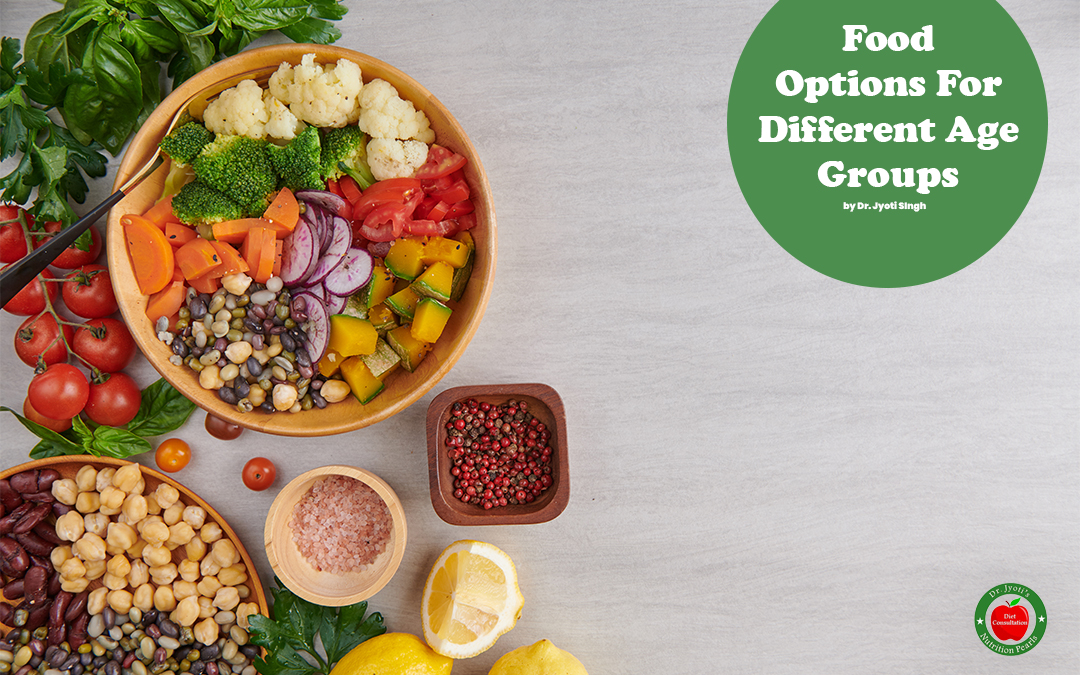A balanced diet is essential for maintaining good health, boosting immunity, and supporting proper development at every stage of life. However, nutritional needs vary as we age. Understanding these changes and adapting our diet accordingly can lead to a healthier and more vibrant life. Here’s a comprehensive guide to balanced diet tips for every age group.
Infants (0–12 Months)
During the first year of life, nutrition is critical for rapid growth and development. Breast milk or infant formula should be the primary source of nourishment. Around 6 months, infants can begin to eat solid foods, starting with iron-rich options like fortified cereals and pureed meats. Parents should gradually introduce a variety of vegetables, fruits, and whole grains to build healthy eating habits.
Foods to Avoid: Honey (due to the risk of botulism), cow’s milk (before age 1), and small, hard foods that could pose a choking hazard.
Toddlers (1–3 Years)
Toddlers need small, frequent meals to match their high energy levels and small stomachs. Meals should include calcium-rich foods like milk, cheese, and yogurt to support bone development. Encouraging a variety of colorful fruits and vegetables helps establish a preference for healthy foods early on.
Limit sugary snacks, fruit juices, and processed foods to avoid developing unhealthy preferences.
Children (4–12 Years)
As children grow, their diet should include all essential food groups: lean proteins, whole grains, dairy, fruits, and vegetables. Nutritious snacks like nuts, boiled eggs, fruits, and yogurt support growth and learning. Hydration is key—encourage water over sugary drinks.
Involving children in grocery shopping and meal preparation can make healthy eating fun and educational.
Teenagers (13–19 Years)
Teenagers experience rapid physical and emotional development. Their increased energy needs can be met through a diet rich in complex carbohydrates, lean proteins, and healthy fats. Calcium and iron are especially important—calcium supports bone development, while iron is essential for menstruating girls and overall energy levels.
Help teens build a healthy body image and avoid the influence of fad diets. Limit fast food, excessive caffeine, and sugary beverages.
Adults (20–59 Years)
For adults, the focus shifts to maintaining health and preventing lifestyle-related diseases. Practicing portion control and choosing nutrient-dense foods helps manage weight and energy levels. Include plenty of fiber-rich foods like whole grains, legumes, fruits, and vegetables to support digestion and reduce cholesterol.
To protect heart health, opt for lean proteins, low-sodium options, and healthy fats from sources like olive oil, nuts, and avocados. Drink 8–10 cups of water daily to stay hydrated.
Seniors (60+ Years)
As metabolism slows and appetite decreases, seniors need smaller, more nutrient-dense meals. Prioritize foods high in protein (to maintain muscle mass), calcium and vitamin D (to preserve bone density), fiber (to aid digestion), and vitamin B12 (to support nerve function).
Because the sense of thirst may decline with age, seniors should make a conscious effort to drink water regularly. For those with dental issues, softer foods like cooked vegetables, ripe fruits, and soups can be easier to consume.
General Tips for All Ages
Regardless of age, some principles of a balanced diet are universal:
-
Eat the rainbow: A colorful plate ensures a wide variety of nutrients.
-
Read nutrition labels: Avoid foods high in sugar, salt, and unhealthy fats.
-
Plan meals: Reduces the temptation of fast food and supports mindful eating.
-
Stay physically active: Complements healthy eating and boosts overall well-being.
Conclusion
Eating well is a lifelong journey that evolves with our needs. By understanding the unique dietary requirements of each life stage, we can make smarter food choices that promote vitality, growth, and longevity. Whether you're feeding a newborn or planning meals for an aging parent, a balanced diet remains the cornerstone of a healthy life.





Comments (0)
Leave a Comment
No comments yet. Be the first to share your thoughts!